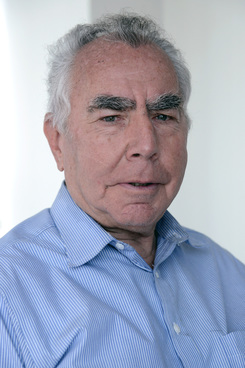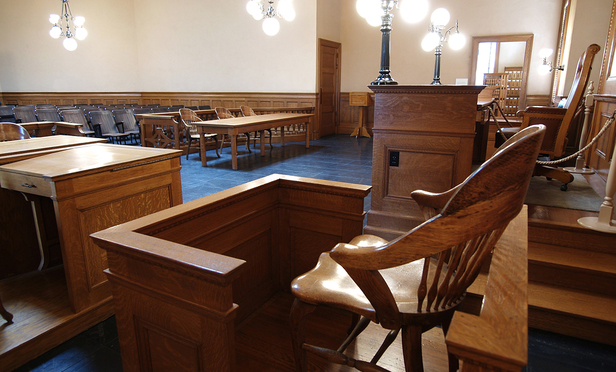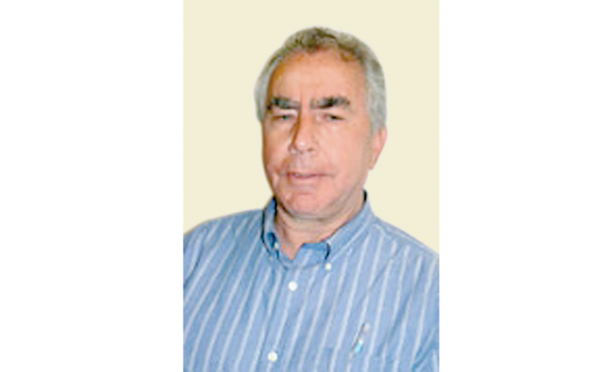Martin A Schwartz

January 02, 2015 | New York Law Journal
Using Section 1983 to Contest State Court RulingsIn his Section 1983 Litigation column, Martin A. Schwartz writes: In a series of decisions the Supreme Court and lower federal courts extended the Younger abstention doctrine, which generally bars the federal courts from interfering with state judicial proceedings, from state court criminal proceedings to a wide range of state court civil and even administrative proceedings. Last term, however, the Supreme Court rendered an important decision limiting the scope of the Younger doctrine.
By Martin A. Schwartz
11 minute read

November 03, 2014 | New York Law Journal
Public Employees' Testimony and the First AmendmentIn his Section 1983 Litigation column, Martin A. Schwartz writes that in 'Lane v. Franks' the U.S. Supreme Court last term held that a public employee's truthful testimony pursuant to subpoena, on a matter of public concern, given outside of his ordinary job responsibilities, was protected speech for the purpose of his §1983 First Amendment retaliatory firing claim.
By Martin A. Schwartz
11 minute read

August 22, 2014 | New York Law Journal
The Supreme Court's Qualified Immunity QuintetIn his Section 1983 Litigation, Martin A. Schwartz reviews the five decisions concerning qualified immunity the U.S. Supreme Court rendered this past term, writing that while the court did not break new ground, it applied numerous important qualified immunity principles that make the decisions required reading for all §1983 litigators.
By Martin A. Schwartz
15 minute read

June 27, 2014 | New York Law Journal
Prosecutor's Fabrication of Evidence Held Actionable Under §1983In his Section 1983 Litigation column, Touro Law Center professor Martin A. Schwartz discusses the case "Fields v. Wharrie," where the U.S. Court of Appeals for the Seventh Circuit recently held that a prosecutor may be held liable under Section 1983 for fabricating evidence which the prosecutor used against a wrongfully convicted criminal defendant.
By Martin A. Schwartz
10 minute read

May 01, 2014 | New York Law Journal
Developments in Expert Testimony in Section 1983 ActionsIn his Section 1983 Litigation column, Touro Law Center professor Martin A. Schwartz analyzes recent federal court decisions concerning expert testimony of police practices experts; expert testimony relying upon aspirational standards; and whether the testimony of a treating physician should be treated as a lay or expert witness testimony.
By Martin A. Schwartz
13 minute read

March 04, 2014 | New York Law Journal
Impeaching Witness Credibility in Police Misconduct ActionsIn his Section 1983 Litigation column, Martin A. Schwartz, a professor at Touro Law Center, writes that many plaintiffs asserting claims against police officers have had prior encounters with law enforcement authorities. Recent federal court decisions show how far defendants may go in using previous "immoral conduct" to impeach the plaintiff's credibility.
By Martin A. Schwartz
10 minute read

January 03, 2014 | New York Law Journal
Relationship Between Contingency and §1988 Statutory FeesIn his Section 1983 Litigation column, Martin A. Schwartz, a professor at Touro Law Center, reviews two U.S. Supreme Court decisions provide substantial guidance on the relationship between the statutory §1988 fee and the contingency fee, which are frequently both provided for in a retainer agreement for §1983 plaintiffs.
By Martin A. Schwartz
12 minute read

October 30, 2013 | New York Law Journal
Clarifying Causation in Section 1983 ActionsIn his Section 1983 Litigation column, Martin A. Schwartz, a professor at Touro Law Center, writes that in some §1983 constitutional actions constitutional causation principles may diverge from the common-law causation principles. Sometimes the divergence favors the plaintiff and sometimes the defendant. In either case the parties and the district judge must ensure that the causation instructions reflect the governing constitutional principles.
By Martin A. Schwartz
14 minute read

May 15, 2012 | Daily Business Review
Lifeline extended for bulk acquisitions of condo unitsMartin A. Schwartz of Bilzin, Sumberg, Baena, Price & Axelrod considers the extension of the Distressed Condo Relief Act, which removes developer liability clauses for bulk purchases.
By Martin A. Schwartz
3 minute read

January 26, 2011 | Daily Business Review
Board of Contributors: Phantom units are a hidden problem in distressed condominiumsInvestors or lenders considering an investment in a distressed condominium project with phantom units need to be attuned to potential problems.
By Martin A. Schwartz and Jeremy H. Segal
5 minute read
Trending Stories
- 1Gibson Dunn Sued By Crypto Client After Lateral Hire Causes Conflict of Interest
- 2Trump's Solicitor General Expected to 'Flip' Prelogar's Positions at Supreme Court
- 3Pharmacy Lawyers See Promise in NY Regulator's Curbs on PBM Industry
- 4Outgoing USPTO Director Kathi Vidal: ‘We All Want the Country to Be in a Better Place’
- 5Supreme Court Will Review Constitutionality Of FCC's Universal Service Fund
More from ALM
- Legal Speak at General Counsel Conference East 2024: Match Group's Katie Dugan & Herrick's Carol Goodman 1 minute read
- Legal Speak at General Counsel Conference East 2024: Eric Wall, Executive VP, Syllo 1 minute read
- Legal Speak at General Counsel Conference East 2024: Virginia Griffith, Director of Business Development at OutsideGC 1 minute read



